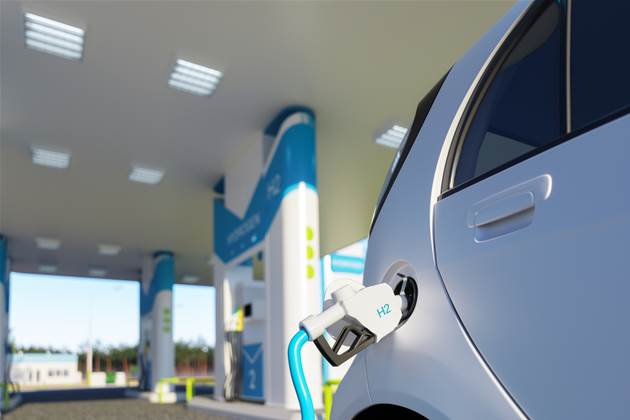A new report from Juniper Research reveals that the number of on-road hydrogen vehicles will grow by 1500 percent in the next five years, jumping from 60 thousand this year to 1 million in 2027.
According to a whitepaper on the subject, Juniper defines hydrogen vehicles as, “A vehicle that uses a hydrogen propulsion system as its onboard fuel. The chemical energy of hydrogen and oxygen reacts with the fuel cell and converts the energy to electricity. Hydrogen vehicles produce no harmful tailpipe emissions."
Hydrogen vehicles use fuel cell technology similar to a battery that offers more efficiency than conventional internal combustion engine vehicles.
According to the authors, “Fuel cells offer clean, efficient, reliable power generation to almost any device requiring electrical power. Hence fuel cells are used in a wide range of transport applications, from hydrogen vehicles to aeroplanes.”
Digital Nation Australia recently explored the maturity of the hydrogen industry in Australia as the construction industry looks to green steel as part of their decarbonisation efforts.
“The burning of fossil fuels, especially carbon dioxide, to generate electricity and power transportation, has far-reaching effects on the climate and ecosystems. Alternative fuels such as hydrogen reduce carbon dioxide, sulphur dioxide, nitrogen oxides, carbon monoxide, and particulate matter gradually gain popularity and acceptance,” the report said.
According to the research, consumer vehicles make up over 60 percent of the hydrogen vehicle market, with commercial hydrogen vehicle development at a nascent stage, with cost cited as a limiting factor.
Research co-author Olivia Williams said, “Manufacturers will need to make hydrogen vehicles more affordable to become viable for fleets, but increased range and suitability for heavy goods transport will ultimately drive growth and economies of scale.”

Car manufacturers such as Hyundai, Toyota and BMW are leading the charge when it comes to investment in hydrogen vehicles, but fuelling infrastructure is also seen as a challenge for wide-scale adoption.
“Infrastructure vendors must provide ‘green’ hydrogen, produced using renewable energy sources, to best take advantage of concerns around the environment driving the adoption of alternative fuels,” the report said.




_(20).jpg&h=140&w=231&c=1&s=0)






 iTnews Executive Retreat - Security Leaders Edition
iTnews Executive Retreat - Security Leaders Edition
 iTnews Benchmark Awards 2026
iTnews Benchmark Awards 2026
 iTnews Cloud Covered Breakfast Summit
iTnews Cloud Covered Breakfast Summit
 The 2026 iAwards
The 2026 iAwards












_(1).jpg&h=140&w=231&c=1&s=0)



